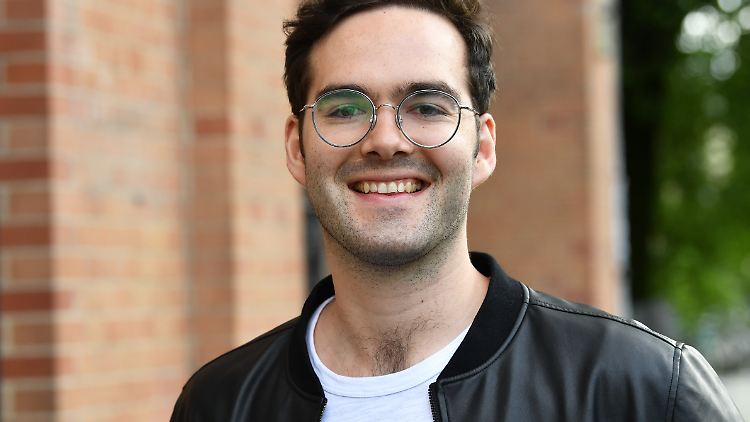Unu founder in an interview
“We wanted to build the Tesla on two wheels”
06/17/2023, 3:10 p.m
The electric scooter brand Unu was founded in Berlin in 2013. Since then, the startup has been able to sell around 15,000 zero-emission scooters in the 50 class in Germany. According to company founder Pascal Blum, every fifth e-scooter in Germany is a Unu and his scooter brand is the market leader. The success made Berliners euphoric. But there were setbacks. Nevertheless, young entrepreneur Blum is confident that Unu is well positioned for the next 10 years and the turnaround in traffic.
If you look back on ten years of Unu: What were the highlights?
Pascal Blum: It went well that we founded the company out of university and developed a great product, which was well received relatively quickly. In 2018 we were already the market leader in Germany. It went better than we expected. We then also took large partners on board, such as Bosch, who provide our service.
What were low blows?
The big difficulties arose around the year 2020. When you’re young and things are going well, you quickly overestimate yourself. At the time, we had the feeling that we could build a Tesla on two wheels and develop everything ourselves – from the entire vehicle, electronics and software in the cloud and app. With this claim, we went to the next model, the Scooter Pro. We also listened to customers to develop their dream vehicle and felt we could do it quickly and cheaply. In the end it cost five times more and also took longer than expected.
Why was that?
In early 2020 we finally got into production. We produce in Asia. But after just two to three weeks, the shift in our supply chain was down. In the end it was seven months in which we were unable to deliver any product to our customers and generate no sales. We were confronted very hard with the risks of the supply chain. Then the chip crisis also developed. The scooter has an unbelievable amount of chips. Of course we were the last ones behind all the big ones to get them. Then came the container crisis and a battery recall from the first product. After all the luck in the years before, karma caught up with us in 2020.
How did you react?
We had to set up the company completely differently to get through this crisis. We have restructured our supply chain, we bought certain components in stock much earlier. We have reorganized the logistics. We also had to adjust and downsize as a company in order to have a cost structure that we could live with. A difficult phase. Looking back, we can attribute many positive developments to the initiatives we implemented in response. Now we have a stable supply chain, planning security for our components well into next year and we can circumvent these problems in a stable manner. In addition, we have revised our product structure and, with the Move, offer a cheaper model.
In the recent past, mobility startups have come and gone. Why does Unu have longer breath?
We have come to the conclusion that the big change in mobility, away from the car towards more sustainable forms of drive, will take longer. The second topic: mobility is a hardware business that is much more capital intensive than an app development. We had the advantage that we had difficulties earlier than others and learned from them earlier and positioned ourselves more stably earlier. We are now seeing a consolidation taking place. But the general trend towards more sustainable forms of development and lighter vehicles is actually now gaining momentum.
In the lower performance classes, the electric drive for scooters is now a good alternative to the combustion engine. Will electric prevail here?
Yes. In fact, you can already see that if you look at the numbers in Europe. In Holland, more than 20 percent of new vehicles are already electric. In two to three years it will be 50 percent. In the 50cc range, a petrol engine no longer has any advantage over an electric scooter. The purchase is similarly expensive, but the running costs of the e-scooter are much lower. The batteries are relatively light and handy and can be charged anywhere at the socket. You can also accelerate better without emissions. Accordingly, the electric drive prevailed in the 50s segment. In the 125 segment and upwards, if you look at the numbers, this happens with a few years lag. Here, too, Elektro 2022 grew strongly, albeit at a low level. The problem here is that at higher speeds, the ranges decrease significantly. Physical miracles are not possible here. But thanks to technical developments in the battery sector, better and better results are being achieved here as well, and ever faster models with longer ranges are pushing into the market. Accordingly, the segment will follow the trend of the 50 class with a delay of three to four years.
When Unu was founded, everyone was talking about the turnaround in traffic. Smart, clean mobility, liveable cities – that is the hopeful vision. Little has changed in Germany so far. Do you still believe in the turning point?
Now we’re looking at it more realistically. Ten years ago we were euphoric. At that time we believed that more would change in the next ten years than in the past 50 years. That didn’t come true. The nice thing: Despite the slower speed of the traffic turnaround, it is very sustainable. These are trends that can no longer be reversed. Accordingly, I see that it will take a long time. But the pressure on politicians is increasing and politicians are becoming more and more active. There are many subsidies for scooters in the city area. There is a national GHG quota. The funding ensures that this trend will grow and will fundamentally change the scooter market over the next five years.
